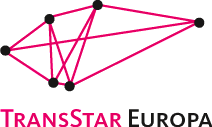Crossed: Reading and Discussion
Sylwia Chutnik’s novel „Dzidzia“ tells a story of a mentally disabled girl who was born without legs and arms. The grandmother of that „Babylein“ (in German) turned two Polish women over into the hands of the Nazis in WWII. Dzidzias handicap was accepted as a punishment for sins committed by the grandmother. Although she cannot really speak, she is somehow connected to the time of the war and functioning as a medium Dzidzia is able to articulate the words spoken by people from past times.
The most important topic of the event was the not published translation in Germany. The reasons? The lack of empathy, a too rough description of the deformed girl. But the author Sylwia Chutnik just wanted show two important topics with her book: The problem of the disabled in society and the influence of what happened to people or actually the impossible attempt to cancel history. We can just hope that soon some publishing house in Germany would properly read the translation and decide to publish „Dzidzia“. At least Olaf Kühl, the presenter of the event, would think so.
by Petra Grycová
Read more.


